- Home
- Lisa Kleypas
Hello Stranger Page 8
Hello Stranger Read online
Page 8
“How could she fit inside?” Garrett asked skeptically.
“A baker’s basket used to be large enough for a man to carry on his back.”
“I still can’t picture it.”
“’Twould be an easy matter if she were like you.” His glinting gaze slid over her slim form as he added, “Pocket size.”
Unaccustomed to being teased, Garrett laughed and turned pink.
As they made their way past stalls and carts, Garrett heard a variety of accents: Irish, Welsh, Italian, and French. Ransom knew many of the hawkers and peddlers, and bantered back and forth with them, exchanging friendly insults. More than once, Garrett was slyly warned about keeping company with “yon soople-tongued rascal,” or “that pretty-faced vagabone,” and was offered no end of advice about how to bring such a troublesome young man to heel.
The variety of wares was staggering: stacks of brown haddock fried in batter, pea soup crowded with chunks of salt pork, smoking-hot potatoes split and doused with butter, oysters roasted in the shell, pickled whelks, and egg-sized suet dumplings heaped in wide shallow bowls. Meat pasties had been made in half-circle shapes convenient for hand carrying. Dried red saveloy and polony sausages, cured tongue, and cuts of ham seamed with white fat were made into sandwiches called trotters.
Farther along the rows, there was an abundance of sweets: puddings, pastries, buns crossed with fat white lines of sugar, citron cakes, chewy gingerbread nuts dabbed with crackled icing, and tarts made with currants, gooseberries, rhubarb, or cherries.
Ransom guided Garrett from one stand to the next, buying whatever caught her interest: a paper cone filled with hot green peas and bacon, and a nugget of plum dough. He coaxed her to taste a spicy Italian veal stew called stuffata, which was so delicious that she ate an entire cup of it. Nothing, however, could induce her to try a bite of spaghetti, a plate of long white squiggly things, swimming in cream.
“No, thank you,” she said, eyeing it uneasily.
“It’s like macaroni,” Ransom insisted, “only cut into cords instead of tubes.”
Garrett shrank from the sight of the unfamiliar food. “It looks like worms.”
“It’s not worms. It’s made of flour and eggs. Have a taste.”
“No, I can’t. I truly can’t.” Garrett blanched as she watched him twirl a long strand around the fork tines. “Dear God, please don’t eat it in front of me.”
Ransom was laughing. “Are you so squeamish? And you a doctor?”
“Take it away,” she begged.
He shook his head with a rueful grin. “Wait here.” After handing the tin plate to a pair of boys standing near the stall, he paused to purchase something else. He returned and gave her a beverage in a brown glass bottle.
“Ginger beer?” she guessed.
“Brachetto rosso.”
Garrett took a tentative swallow and gave a little hum of appreciation at the taste of sweet red wine. She continued to drink from the bottle as they walked along the edge of the crowd that had gathered in the center of the green. “What is everyone waiting for?” she asked.
“You’ll find out soon.” Ransom led her to the west side, where the imposing sessions house loomed, its classical pediment supported by gigantic columns.
“My former headmistress, Miss Primrose, would be appalled if she could see me,” Garrett commented with a grin. “She always said that eating in the street was evidence of low breeding.”
“Where did you go to school?”
“In Highgate. My Aunt Maria paid for my tuition at an experimental boarding school. They taught girls the same subjects taught to boys: mathematics, Latin, and science.”
“So that’s how the trouble started,” Ransom said. “No one told you that girls can’t learn science.”
Garrett laughed. “As a matter of fact, my father’s entire family said that. They were outraged by the idea of sending me to such a place. My grandmother said education would strain the female mind so severely, I would be left mentally and physically enfeebled for the rest of my life. Not only that, my future children would be debilitated as well! But Aunt Maria persisted, bless her. My father eventually went along with the plan, mostly because I’d reached the age of ten and he didn’t know what to do with me.”
They came to the sessions house, and Ransom drew her into a sheltered space between a gigantic column and the grand flight of stone stairs. It was cool and dark, and slightly dank with the scents of stone and rust.
After setting down the doctor’s bag and cane, Ransom turned to face her, his gaze steady and interested. “Did you like boarding school?”
“I did. I was grateful to be given a real education. It changed my life.” Garrett set her back against the staircase wall and took another swallow of wine before continuing pensively. “Of course, living at boarding school wasn’t the same as having a family. The students were discouraged from forming attachments to the teachers. If we were distressed or sad, we kept it to ourselves and tried to stay busy. Miss Primrose wanted us to learn endurance and self-reliance.” She paused, her teeth catching lightly at her lower lip. “Sometimes I think . . . perhaps . . . I may have taken those lessons too much to heart.”
“Why do you say that?” Ransom leaned a shoulder against the wall as he looked down at her, his big, sheltering form very close.
Garrett was chagrined to realize how much she’d been talking. “I’m being tiresome, babbling on and on about my childhood. Let’s change the subject. How do you—”
“I like the subject,” Ransom interrupted, his voice lowering to a velvety pitch. “Tell me what you were going to say.”
Garrett drank again to bolster her nerve before replying. “It’s only that I . . . tend to keep others at a distance. Even with a good friend like Lady Helen, I hold back things that I know would shock or distress her. My work . . . the way it’s shaped me . . . and perhaps having lost a mother . . . I can’t seem to be close to people.”
“’Tis a habit, is all.” The glow of a streetlamp found sapphire gleams in the depths of his eyes. “Someday you’ll trust someone enough to let down your guard. And then there’ll be no holding back.”
They were interrupted as a young girl walked along the pavement in front of the sessions house, calling, “Flowers! Fresh-cut flowers!” She stopped in front of them. “Posy for the lady, sir?”
Ransom turned to the girl, who wore a colorful scarf over her long dark hair and a patchwork apron over her black dress. She carried a flat basket filled with posyes, their stems wrapped with bits of colored ribbon.
“There’s no need—” Garrett began, but Ransom ignored her, browsing over the tiny bouquets of roses, narcissus, violets, forget-me-nots, and dianthus.
“How much?” he asked the flower girl.
“A farthing, sir.”
He glanced at Garrett over his shoulder. “Do you like violets?”
“I do,” she said hesitantly.
Ransom gave the flower-girl a sixpence and picked out one of the posyes.
“Thank you, sir!” The girl scurried away as if fearing he might change his mind.
Ransom turned to Garrett with the cluster of purple blossoms. Reaching for the lapel of her walking jacket, he deftly tucked the ribbon-wrapped stem of the posy into a buttonhole.
“Violets make an excellent blood-purifying tonic,” Garrett said awkwardly, feeling the need to fill the silence. “And they’re good for treating cough or fever.”
The elusive dimple appeared in his cheek. “They’re also becoming to green-eyed women.”
Self-consciously she glanced down at the posy and touched one of the velvety petals. “Thank you,” she murmured. “This is the first time a man’s ever given me flowers.”
“Ah, darlin’ . . .” His perceptive gaze searched her face. “Do you intimidate men so badly, then?”
“I do, I’m horrid,” Garrett confessed, and a mischievous laugh broke out. “I’m independent and opinionated, and I love telling people what to do. I have no
feminine delicacy. My occupation either offends or frightens men, or sometimes both.” She shrugged and smiled. “So I’ve never been given so much as a single dandelion. But it’s been worth it to live as I choose.”
Ransom stared at her as if spellbound. “A queen, you are,” he said softly. “I could travel the world the rest of my life, and not find another woman with half your ways.”
Garrett’s knees seemed to have turned into isinglass. Somewhere in her dissolving brain, it occurred to her that there was a reason she felt so warm and chatty and comfortable. Frowning, she held out the wine bottle and regarded it suspiciously.
“I’ve had enough of this,” she said, handing it to him. “I don’t want to become tipsy.”
His brows lifted. “You’ve scarce had enough to make a field mouse tipsy.”
“It’s not just the wine. Dr. Havelock poured a glass of birthday whiskey for me earlier. And I must keep my wits about me.”
“For what?”
She floundered for a reason but fell silent.
Ransom drew her deeper into the shadows. His hand pressed her head to his shoulder, against the soft, supple leather of his vest. She felt him stroke her cheek gently, as if he were smoothing the wing of a small bird or the easily torn petals of a poppy. The sweet scent of violets clung to his fingers. For the rest of her life, she thought hazily, that smell would bring her back to this moment.
“You’re used to being in charge,” he murmured, “every second of the day. With no one to catch you if you set a foot wrong.” His voice curled around her ear, making her shiver. “But I’m giving you the night off. You’ll have my arms to hold you steady. Drink more wine, if you like. There’ll be music and dancing later. I’ll buy a ribbon for your hair, and waltz you across the green at midnight. What do you say to that?”
“I say we’d look a fine pair of fools,” Garrett said. But she let herself relax into the power and heat of him, conforming bonelessly to the hard framework of his body.
A brush of silky warmth against her temple raised the little hairs on her arms and the back of her neck. The movements of her breathing pressed into the rise and fall of his chest until the rhythms blended. She was distantly aware of other couples nearby, indulging in bits of amorous fondling and a stolen kiss or two. Before tonight, Garrett had never understood why people indulged in such shameless behavior in public. Now she did. Shadows didn’t always harbor fearful things. Sometimes shadows were the only place for a little magic to hide.
People were dimming streetlamps. The lights in shop windows and public houses were vanishing. A woman was singing somewhere nearby—one of the street entertainers, performing a ballad in Gaelic. Her voice was supple and airy, weaving an intricate melody that fell on the ear like an audible heartbreak.
“What is that song?” Garrett asked.
“Donal Og. One of my mam’s favorites.”
“What do the lyrics mean?”
Ransom seemed reluctant to answer. After a long moment, he began to translate quietly near her ear. “Black as coal is the grief all around me. You’ve stolen the future and past from me, you took the East and West from me. The sun, moon, and stars from my sky you’ve taken—and God as well, if I’m not mistaken.”
Garrett was too moved to speak.
Ethan Ransom could never fit in with the pattern of her life as it was now, nor in any of its possible future shapes. He was an anomaly, dazzling and temporary. A shooting star, burning up from the friction of its own velocity.
But she wanted this man. She wanted him with an intensity that was beginning to make a number of deranged ideas seem like sensible plans of action.
The crowd occupying the green was stirring in anticipation. Carefully Ransom began to turn Garrett to face away from him, ignoring her muffled protests.
“Turn around,” he insisted, “so you’ll be able to see.”
“See what?” she asked, wanting to stay against him just as she was. Ransom pulled her back firmly against his chest and crossed an arm around her waist. Before another minute had passed, a long, ear-splitting whistle cut through the air, punctuated by a crackling burst of blue sparks in the upper vault of darkness. Garrett started reflexively, and Ransom clamped his arm more securely around her, his chuckle tickling her ear.
The sky over central London exploded with a simultaneous release of approximately three dozen aerial maroon rockets. Exhilarated cries and cheers erupted from the crowd as pyrotechnic volleys pierced the air: fiery tourbillion spirals, plumes, shells, and rains of colored stars. Elfin light danced over the crowd on the green.
Garrett leaned against Ransom, her head tilted back on his shoulder. She was suffused with a feeling that slid back and forth between happiness and wonder, like one of the shot silk fabrics that appeared to change colors when viewed from different angles. Was this really happening? Instead of being safe at home in bed, she was in the middle of the city at night, breathing in air perfumed with violets and the faint char of phosphorous, watching fireworks with a man’s arms around her.
Even through the layers of their clothing, she could feel the resilient toughness of his flesh, his muscles flexing subtly to accommodate her slightest movement. His head dipped lower, until she felt a soft, hot pressure at the side of her neck.
A shiver went through her, as fine and distinct as the vibration of a harp string. His mouth found an unbearably sensitive place and lingered in an erotic caress that made her toes curl inside her sensible walking boots. When she made no objection, his lips slid lower, his night beard a prickle of velvet as it brushed the tender skin. Another kiss, careful and slow, as if to soothe the wild velocity of her pulse. Hot darts of feeling went down her spine and radiated through every soft place in her body. The palms of her hands and the backs of her knees grew damp, and an unexpected, mortifying twitch awakened between her thighs.
All awareness sank down to the kisses he strung along the side of her throat. Every throb of her heart sent fire through her veins. Her legs wobbled with the alarming inclination to buckle, but his arms anchored her firmly. She tensed, quivered, bit back a gasp. Eventually his head lifted and one of his hands went to the front of her throat. His fingertips explored lightly, weaving hot and cold chills across her skin.
She became dimly aware that the last celestial glints were floating downward. The crowd broke apart, some returning to swarm the food stalls, while others gathered near the center of the green, where a band had begun to play. Ransom continued to hold Garrett, the two of them concealed in the shadowy nook at the front of the sessions house. They watched people clap and dance. Fathers and mothers hoisted children onto their shoulders, groups of elderly women sang well-remembered songs, old men puffed on their pipes, and boys ran about in search of mischief.
Ransom spoke absently, his cheek pressed against her hair. “To the politicians and bluebloods, we’re all alike. They think the working man is a beast of burden with no wit or soul. The pain of loss must not cut him as deep, they think, because he’s so used to hardship. But there’s as much tender feeling and honor in any of these people as there is in a duke and his kin. They’re not pawns. None of them deserves to be sacrificed.”
“Sacrificed by whom?” Garrett asked.
“Selfish bastards who only give a damn about their own power and profit.”
She was silent for a moment, wondering if the “selfish bastards” were men he worked for. Perhaps he was referring to members of Parliament who were against Irish independence. Which side of the “Irish question” was he on? Did he have sympathy for secret societies such as the one that plotted the Guildhall bombing? It was difficult to believe he would conspire to harm innocent people, especially after what he’d just said. But she couldn’t deny that she was too blinded by her own attraction to have any objectivity about who or what he really was.
Garrett turned to face him, wondering whether or not she wanted to know the truth about him. Don’t be a coward, she told herself, and looked directly into his eyes. “É
atán . . .” She felt the subtle tightening of his grip. “I’ve heard rumors about you and your work. I don’t know what to believe. But—”
“Don’t ask.” Ransom’s hands dropped away from her. “You’d be a fool to trust any answer I gave you.”
“You would lie to me?”
“I lie to everyone.”
“Still, I must ask about the night of the Guildhall reception . . . the man who died . . . did you have anything to do with that?”
His fingertips touched her lips to silence her.
“Would the truth make me think better or worse of you?” she persisted.
“It doesn’t matter. Tomorrow we’ll be strangers again. As if tonight never happened.”
There was no mistaking the finality in his voice.
In the past, whenever there had been a conflict between Garrett’s head and her heart, her head always won. This time, however, her heart was putting up a ripping fight. She couldn’t fathom how she was going to make herself accept such an abrupt end to the promise of a relationship unlike anything she’d ever experienced.
“I don’t see how that’s possible,” she said.
“We both know I’m not for the likes of you,” Ransom said quietly. “Someday you’ll have a good, decent husband of the ould stock, who’ll give you a fireside of children, and take you to church of a Sunday. A man with some softness to him.”
“I’ll thank you to let me choose my own companion,” Garrett said. “If I took a husband, I certainly wouldn’t choose some milksop.”
“Don’t mistake softness for weakness. Only a strong man can be soft with a woman.”
Garrett responded with a distracted flick of her hand, having no patience for aphorisms when so many thoughts were colliding in her head. “Also, I don’t plan to have children. I have a career. Not every woman’s destiny is to go from maidenhood to motherhood.”

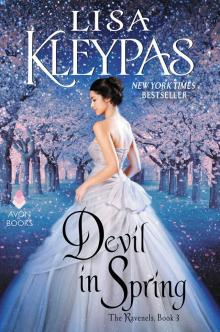 Devil in Spring
Devil in Spring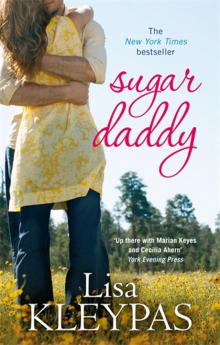 Sugar Daddy
Sugar Daddy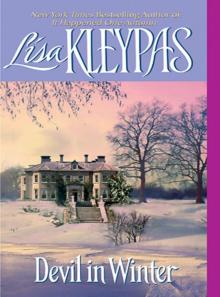 Devil in Winter
Devil in Winter Dreaming of You
Dreaming of You Christmas Eve at Friday Harbor
Christmas Eve at Friday Harbor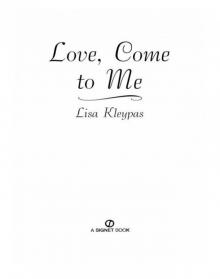 Love, Come to Me
Love, Come to Me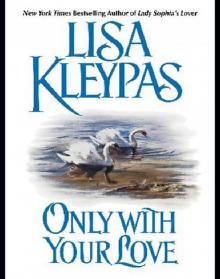 Only With Your Love
Only With Your Love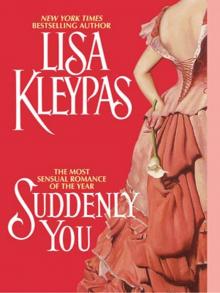 Suddenly You
Suddenly You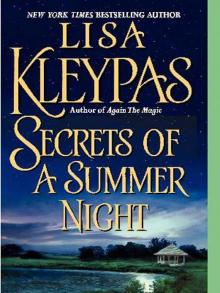 Secrets of a Summer Night
Secrets of a Summer Night Cold-Hearted Rake
Cold-Hearted Rake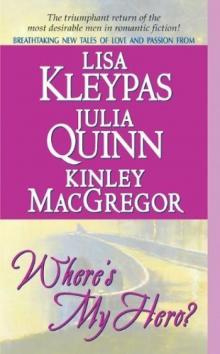 Where's My Hero?
Where's My Hero? Gifts of Love
Gifts of Love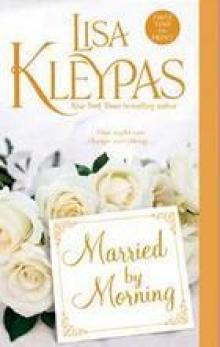 Married by Morning
Married by Morning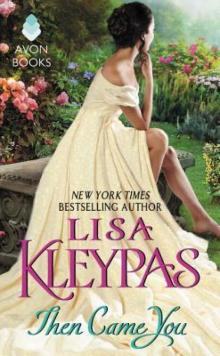 Then Came You
Then Came You Wish List
Wish List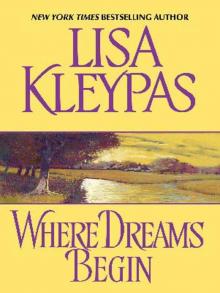 Where Dreams Begin
Where Dreams Begin A Historical Christmas Present
A Historical Christmas Present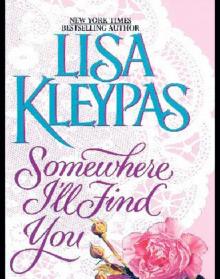 Somewhere I'll Find You
Somewhere I'll Find You Scandal in Spring
Scandal in Spring Someone to Watch Over Me
Someone to Watch Over Me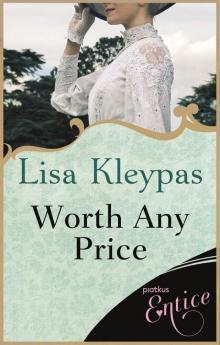 Worth Any Price
Worth Any Price Prince of Dreams
Prince of Dreams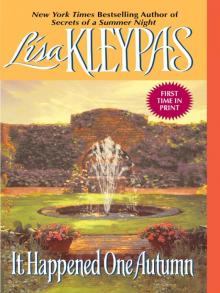 It Happened One Autumn
It Happened One Autumn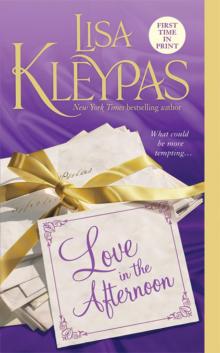 Love in the Afternoon
Love in the Afternoon Devil's Daughter
Devil's Daughter A Wallflower Christmas
A Wallflower Christmas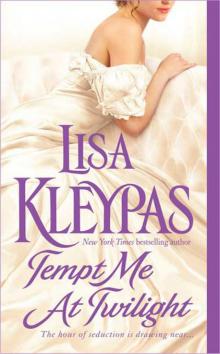 Tempt Me at Twilight
Tempt Me at Twilight Brown-Eyed Girl
Brown-Eyed Girl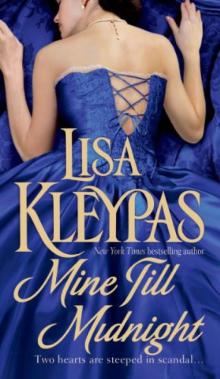 Mine Till Midnight
Mine Till Midnight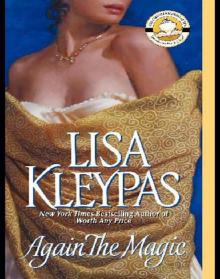 Again the Magic
Again the Magic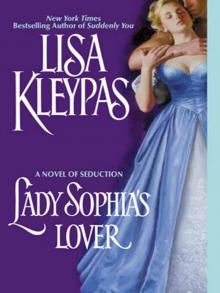 Lady Sophia's Lover
Lady Sophia's Lover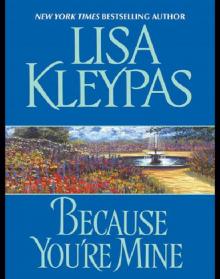 Because You're Mine
Because You're Mine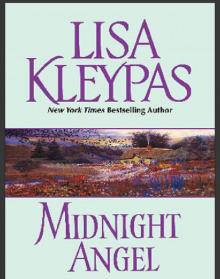 Midnight Angel
Midnight Angel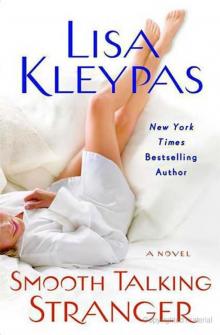 Smooth-Talking Stranger
Smooth-Talking Stranger Blue-Eyed Devil
Blue-Eyed Devil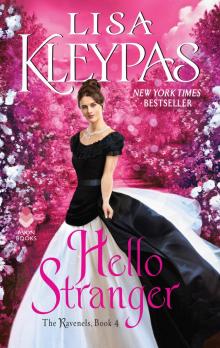 Hello Stranger
Hello Stranger Dream Lake
Dream Lake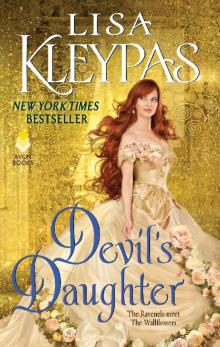 Devil's Daughter: The Ravenels Meet the Wallflowers
Devil's Daughter: The Ravenels Meet the Wallflowers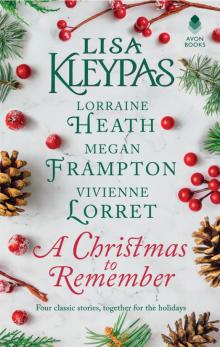 A Christmas to Remember
A Christmas to Remember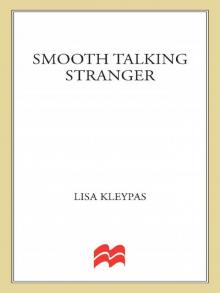 Smooth Talking Stranger
Smooth Talking Stranger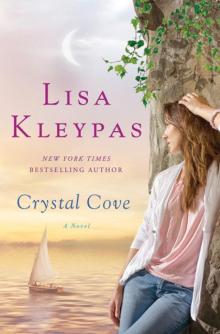 Crystal Cove
Crystal Cove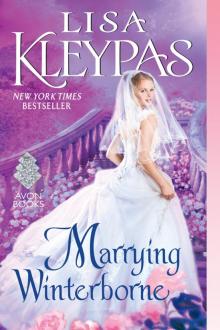 Marrying Winterborne
Marrying Winterborne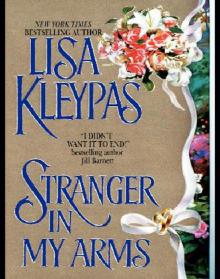 Stranger in My Arms
Stranger in My Arms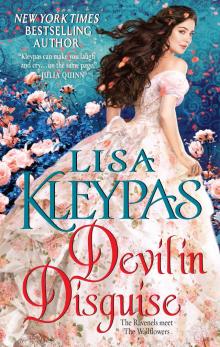 Devil in Disguise
Devil in Disguise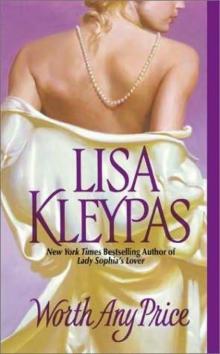 Worth Any Price bsr-3
Worth Any Price bsr-3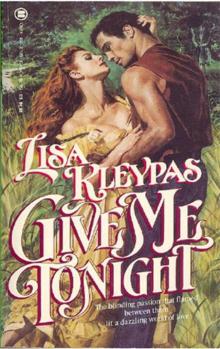 Give Me Tonight
Give Me Tonight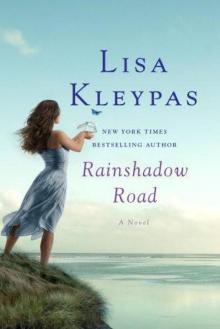 Rainshadow Road fh-2
Rainshadow Road fh-2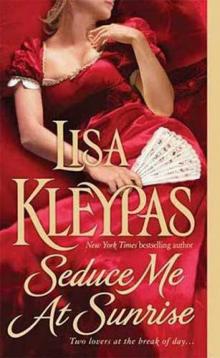 Seduce Me At Sunrise
Seduce Me At Sunrise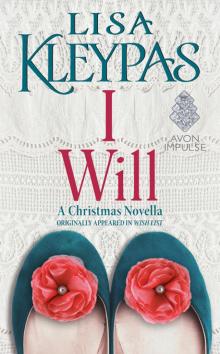 I Will
I Will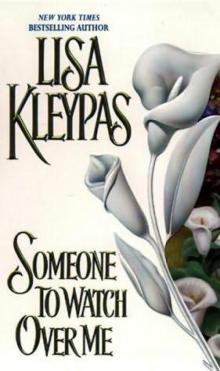 Someone to Watch Over Me bsr-1
Someone to Watch Over Me bsr-1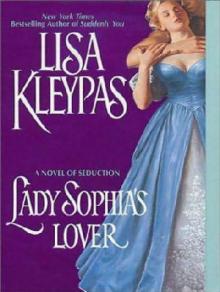 Lady Sophias Lover bsr-2
Lady Sophias Lover bsr-2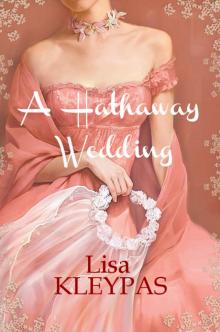 A Hathaway Wedding
A Hathaway Wedding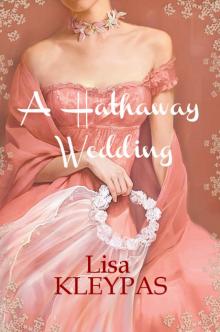 A Hathaway Wedding (Hathaways Bk2.5)
A Hathaway Wedding (Hathaways Bk2.5)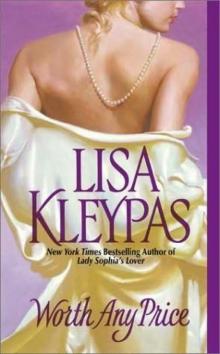 Worth Any Price - Bow Street 3
Worth Any Price - Bow Street 3 Christmas with Holly
Christmas with Holly